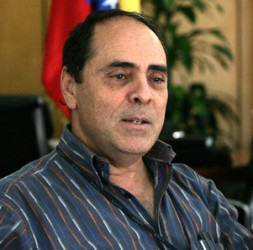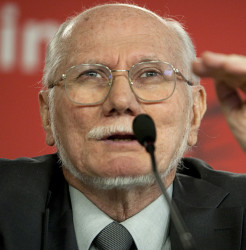CARACAS, (Reuters) – Two former cabinet ministers under late Venezuelan President Hugo Chavez are seeking an investigation to trace the fate of some $300 billion allegedly embezzled during the past decade through a complex currency control system.

Hector Navarro, who ran five ministries under Chavez’s rule, will ask a state ethics council to review the operations of the 13-year-old exchange control mechanism that opposition leaders have described as a “corruption machine.”
Navarro and Jorge Giordani, a former finance minister who was Chavez’s closest economic adviser during his 14-year rule, have made calculations showing the government cannot account for how it spent nearly a third of the $1 trillion that entered its coffers in the past decade.
“A gang was created that was only interested in getting their hands on financial resources, on (the country’s) oil revenue,” Navarro, who helped found the ruling Socialist Party but was expelled in 2014, said in an interview with Reuters.

“Thieves have no ideology,” said Navarro, who continues to describe himself as a revolutionary despite his open criticism of the ruling party.
He did not elaborate on who was responsible for the funds having gone missing and or who might have embezzled them.
The Finance Ministry and the Information Ministry did not immediately respond to requests for comment.
The exchange controls sell dollars at 6.3 bolivars for priority goods such as food and medicine, and at less favorable rates of 12 bolivars and 200 bolivars for other goods. Greenbacks on the black market on Tuesday were fetching nearly 1,000 bolivars, according to website DolarToday.
The differential between the black market and the more favorable rates offers ample profit for those with access to the cheaper dollars.
President Nicolas Maduro has acknowledged corruption in the system but tends to blame private sector companies that took advantage of it. Maduro on Monday night announced the creation of a procurement system for state agencies, promising it would “put an end to the damn corruption.”
Navarro and Giordani are seeking an investigation by an agency known as the Republican Moral Council, which is made up of the chief prosecutor, the state ombudsman and the national comptroller. The three are widely considered to be close to the ruling Socialists.
Opposition leaders have echoed many of Navarro and Giordani’s criticism but also have pilloried them for helping create and maintain the state-led economic model that is now struggling with soaring inflation and chronic product shortages.




